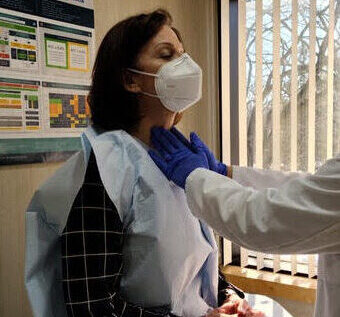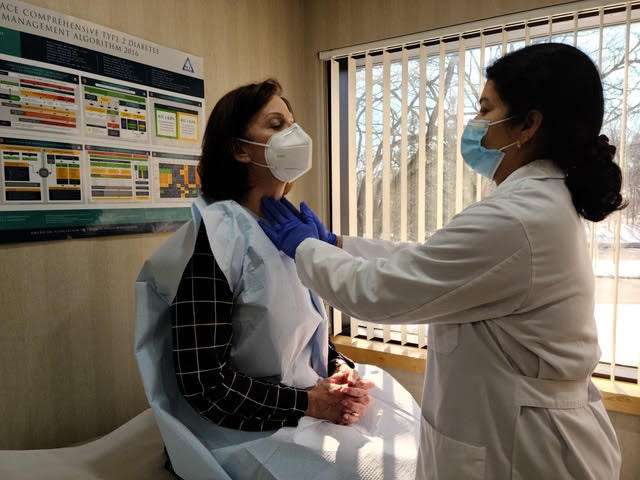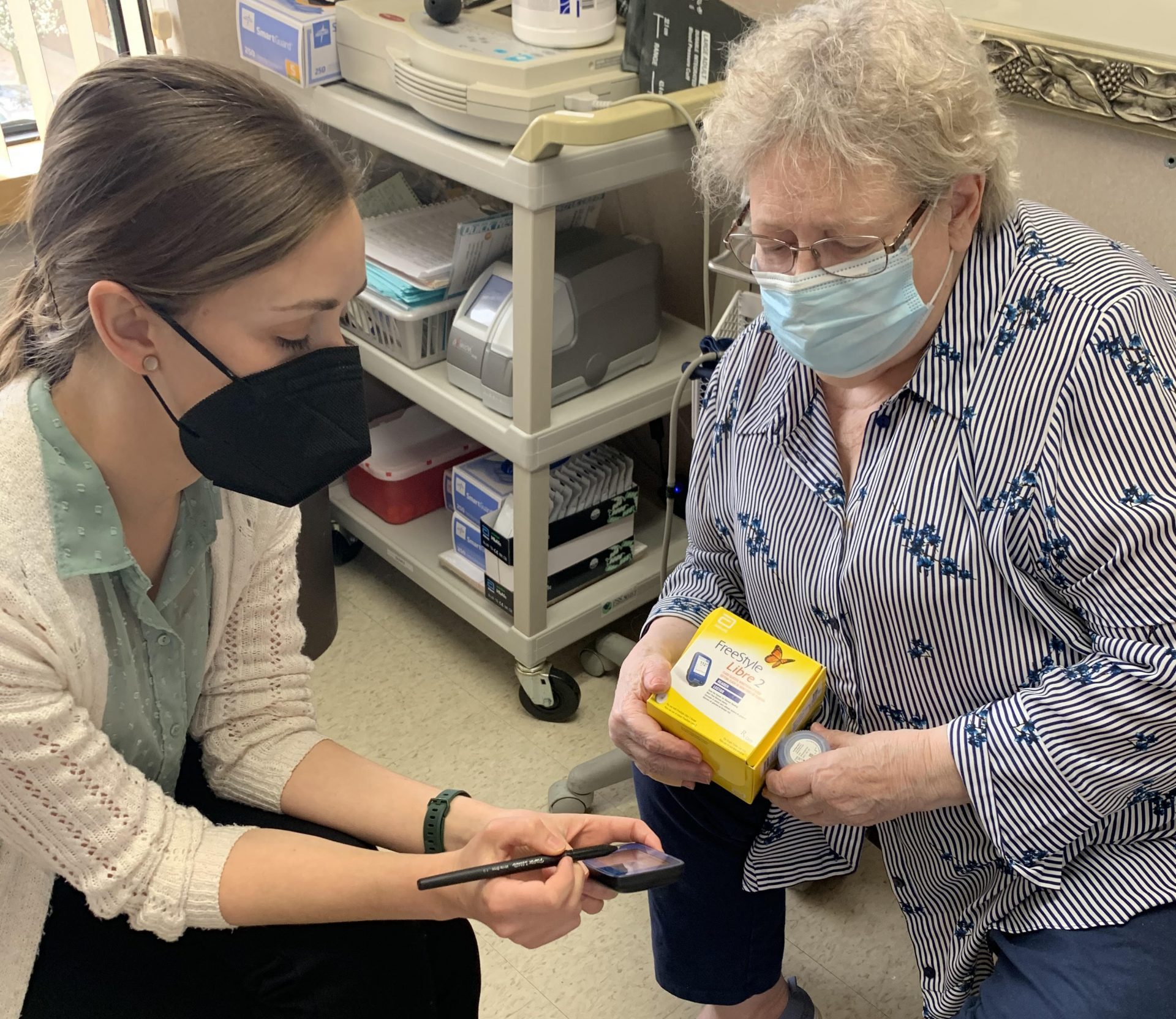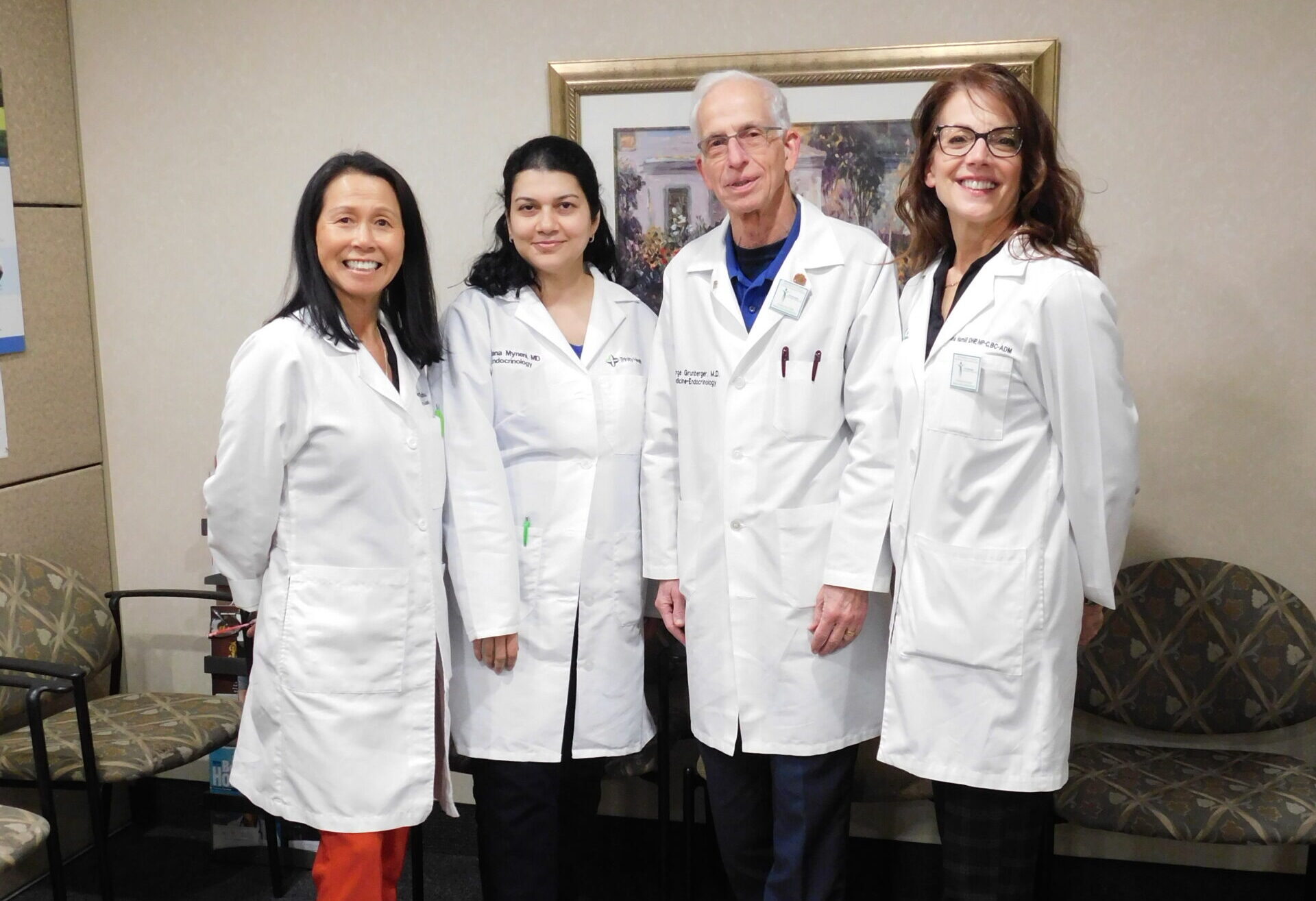Thyroid Cancer Awareness; How-to Conquer Thyroid Cancer
September is Thyroid Cancer Awareness Month, but any time is a good one to learn about your risk factors for Thyroid cancer. We’re going to define thyroid cancer, risk factors, the first signs of thyroid cancer, types of thyroid cancer, and prognoses. If you find you have any concerning symptoms, make an appointment with us today to get them checked out.
The definition of thyroid cancer is when the cells in the thyroid gland mutate and grow abnormally. Those cells then have the potential of spreading to other parts of the body such as the bones or lung tissue. In 2020, the American Cancer Association reported 52,890 new thyroid cancer cases with 2,180 of them dying of them dying of their disease which is a 4% fatality rate.
Risk Factors for Thyroid Cancer
Risk factors for thyroid cancer include a personal history of radiation exposure to the head and neck area for medical conditions such as lymphoma or acne, as well as a family history of thyroid cancer. 75% of all thyroid cancer cases are women. There are some reported cases that are classified as sporadic, with no known risk factors.
Early stages of thyroid cancer are difficult to detect until a palpable or visible mass/ nodule is noted in the neck region which is usually an incidentally finding. Other symptoms can be difficulty swallowing, shortness of breath when laying down, changes in the voice or hoarseness as well as pain or tenderness in neck area. Many times, these findings are identified by the dentist or gynecologist as well as the primary care physician.

Types of Thyroid Cancer
I’ll go over the four types of thyroid cancer that have different presentations as well as prognoses.
- Papillary
- Follicular
- Medullary
- Anaplastic
Papillary comes from follicular thyroid cells that produce and store thyroid hormone. It is the most common, slow growing, and has a nearly 100% survival rate depending on its stage, therefore it is considered the cancer to have if to be presented with a cancer. Most often seen in 30-50 years of age group.
Follicular is the second most common and together with Papillary make up to 90% or more of all thyroid cancers. It occurs more often with patients greater than 50-years-old but also with a very high survival rate of approximately 85% in 10 years. Hurthle cell cancer is a rare follicular thyroid cancer and can be more aggressive.
Medullary arises from C cells in the thyroid gland that produce calcitonin hormone and accounts for only 2% of all thyroid cancers. An increase in calcitonin level can pick up early stages of this cancer and then be cured with surgery. This cancer presents 25% of the time as an inherited form with other endocrine tumors of the pancreas, parathyroid, or adrenal glands. Genetic testing is available for to identify patients at risk and be cured with surgery. However, 75% of cases are sporadic.
Anaplastic is the most aggressive of thyroid cancers but occurs in less than 2% of all thyroid cancers with the underlying cause still unknown. Survival rates are 1 out of 5 in 1 year, however long-term survivors have been documented.
Diagnosing Thyroid Cancer
Diagnosis starts with a good physical exam, followed by blood testing of thyroid gland function and imaging of the thyroid gland through an ultrasound. The images give more information in characteristics of the masses/nodules to suspect the nodule to be benign or cancerous.
If suspicion is high for cancer, then biopsy/ fine needle aspiration to obtain specimen of that mass/nodule is performed by an experienced physician.

Treatment
Treatment of a thyroid cancer most often starts with surgery to identify the staging of the cancer, (early cancer can be cured) but may require radioactive iodine. Only for more aggressive thyroid cancers could treatment include external radiation or chemotherapy.
Most patients survive thyroid cancer and will need thyroid hormone therapy to replace the thyroid hormone necessary for life at a dosage to suppress recurrence of thyroid cell growth. Continued surveillance is recommended with blood thyroid hormone levels and diagnostic imaging (ultrasound, nuclear imaging, PET scan) at varying intervals, again depending on the staging of the thyroid cancer.

Conclusion
Thyroid cancers can be quite scary, but at Grunberger Diabetes Institute, we are dedicated to helping you navigate your diagnosis. If you have any of the above symptoms, please make an appointment with us today to get them checked out. We want to help you live your life to its fullest potential.
About Grunberger Diabetes Institute
Grunberger Diabetes Institute (GDI) provides Diabetes and Endocrine management, as well as a weight Grunberger Diabetes Institute (GDI) provides Diabetes and Endocrine management, as well as a weight management program. Your wellbeing is assessed on an individual level and the treatment includes a plan for the improvement of your overall health and quality of life. We specialize in all things related to diabetes, endocrine, and weight management. This includes but isn’t limited to: diabetic neuropathy, dyslipidemia, obesity, diabetic recipes, reproductive endocrinology, osteoporosis treatment, male hypogonadism, hypercalcemia, all issues and diseases involving the thyroid gland (including thyroid cancer), patients transitioning from pediatric endocrinology to adult endocrinology, type 1 and type 2 diabetes. Schedule with us today to find out why we’re voted the best Endocrinology practice.



